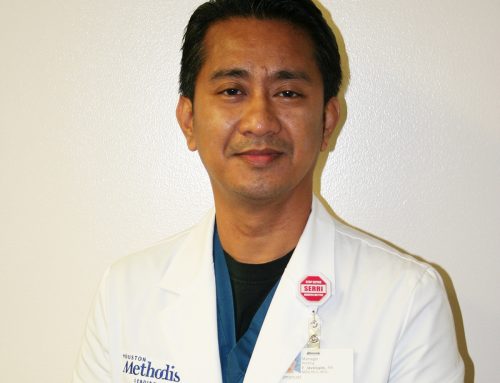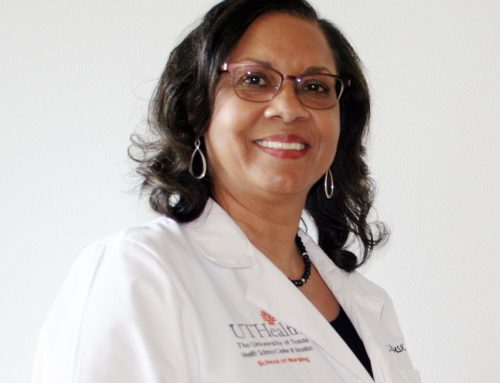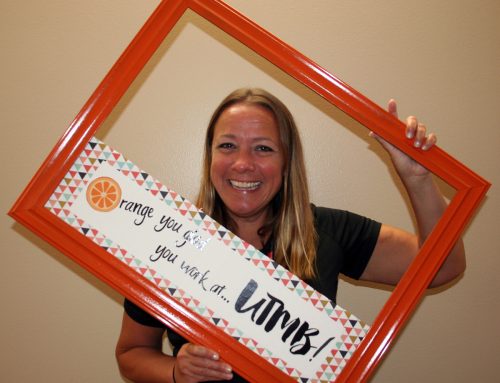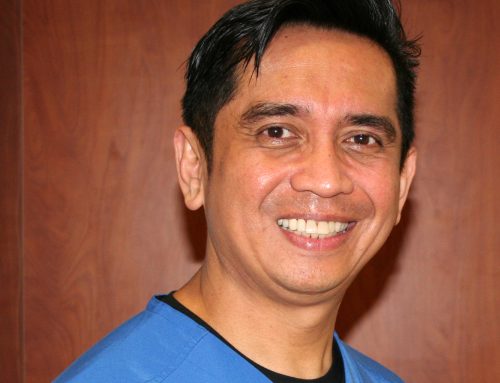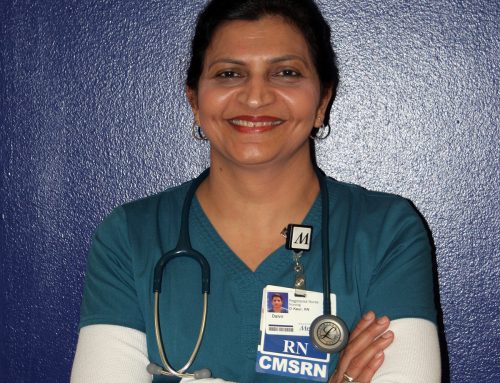2018 Gold Medalist – Non-Hospital Based Care
Norma Sheridan-Leos, RN, MSN, APN, AOCN®, CPPS®, CPHQ®, Advanced Practice Nurse, Houston Methodist Hospital Physicians Alliance for Quality
Norma Sheridan-Leos knew she wanted to be a nurse as a girl growing up in Detroit. “My mother and aunt were nurses so I fell into it naturally,” she says. “When my grandparents died of cancer, I felt that was a calling to work in oncology.”
After earning her BSN at University of the Incarnate Word in San Antonio, she accepted a position at the Audie L. Murphy Memorial VA Hospital, where she met her husband who is also an oncology nurse. The couple worked together in San Antonio for years before moving to Houston to learn more about their specialty at The University of Texas MD Anderson Cancer Center. Later they had the opportunity to relocate to Savannah, Georgia, where they helped open the Curtis and Elizabeth Anderson Cancer Institute at Memorial Health University Medical Center.
“What a joy to be able to help people from Georgia start a first-class cancer center!” she says. “But then after a few years we got homesick for Texas and moved back to Houston.”
As an advanced practice nurse at the Houston Methodist Physicians Alliance for Quality, Norma provides care by phone for complex, medically fragile patients who are at high risk for readmission. She also makes specialized house calls to some of the most fragile and susceptible patient populations, including cancer patients, patients at risk for delirium, and advanced heart failure patients.
Over the last year and a half, she implemented, refined, and evaluated Houston Methodist’s Grand-Aide program, which provides nurse extenders to improve population health, ensure medication adherence, and help reduce emergency department visits. According to Grand-Aide International statistics, one specially trained Grand-Aide can provide care for 100 chronically ill people each year. Norma’s program has been recognized by G-A International as a program of excellence and a model for other programs. Piloted in 2016 and extended full time in 2017, the program has reduced readmissions to Houston Methodist hospitals to between 5 and 7 percent.
“My three nurse aids travel across Houston visiting patients, acting as my eyes and ears in the home,” she says. “They tell me what they see and answer a specific set of protocol questions that we developed. Typically hospitals don’t follow patients at home, in a skilled nursing facility, or at a post-acute care facility, but we do. What I appreciate most about my work is the unique way we’re able combine compassion and state-of-the-art care for patients after discharge. I think the work we’re doing will soon be the standard of care, as 20 percent of Americans will be over the age of 65 in the next few years.”
Norma says that what keeps her excited about her work is the ability to blend evidence-based care and science with compassion. “Some of the people we serve are in desperate need of our help,” she says. “What I’ve learned from my colleagues is never to give up. If one way doesn’t work, try another. There’s no way I’d ever want to do anything else.”
Norma believes that ambulatory care nurses will have an even more profound impact on patients, who now return home in need of more care than in previous years. “In the mid-80s patients stayed in the hospital 6.5 days on average. Today the length of stay is 4.5 days. It’s the ambulatory care nurses that watch over these patients.”
In her nomination of Norma, Laura Moore, BSN, RN-BC wrote: “Norma epitomizes nursing and why it came into existence. Her entire career has been focused on taking care of people in need, especially those in the hardest of circumstances. She provides evidence-based, objective health information to patients and families in a context they can understand to make sure they are safe at home and have a clear understanding of what their next steps are. Working with patients and families to identify and solve a wide range of health care-related problems is her passion, and it shows every time she presents a case study or calls to tell me about a serious situation regarding one of her patients. She is a tremendous role model for our nursing staff and although I am her manager, I look up to her with respect and awe.”
A nurse for 42 years, Norma has published widely, including articles in the Clinical Journal of Oncology Nursing and a book chapter.
“My husband has given me so much support, although he’d be the first to deny it,” she says. “He worked two jobs so that I could get my master’s degree. He’s always been my sounding board and my copy editor as I write articles and book chapters. I can just see him with that red pen of his, crossing out things he says don’t make sense.
“Throughout my career I’ve worked at many different organizations and each time I learned something new,” she adds. “What a wonderful experience to help patients in so many different settings!”
